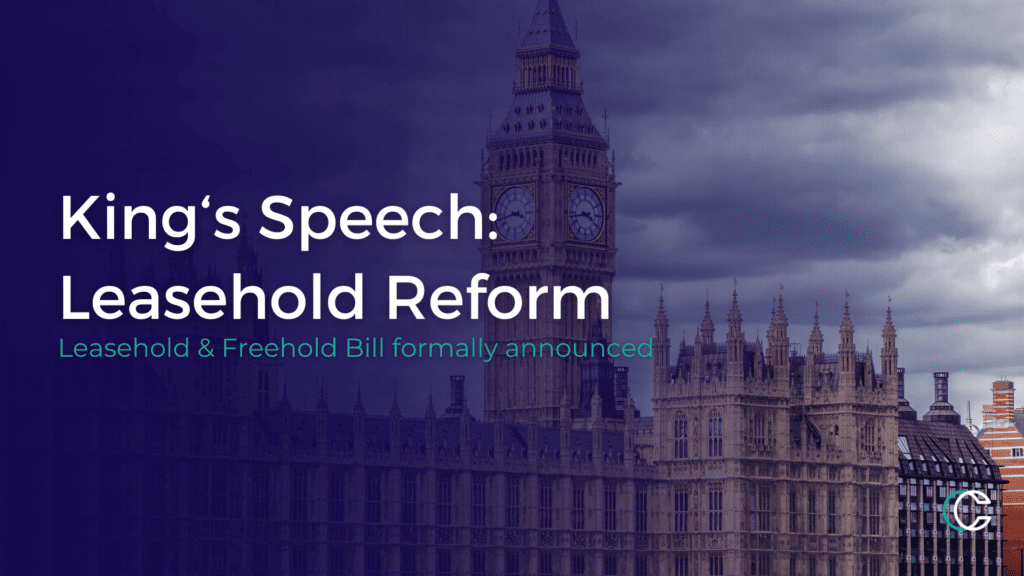Leasehold and Freehold Reform Bill Condensed: How it Affects Leaseholders and Freeholders Going Forward
After many delays and wide speculation, the Leasehold Bill was officially announced during the King’s Speech earlier last week, on Tuesday 7th November 2023.
The speech formally introduced the ‘Leasehold and Freehold Bill’, which promises to deliver big changes to the property sphere.
The overall aim of the bill is to create a sector that is fairer for leaseholders by improving their rights, restricting the creation of new leaseholds in certain contexts, and making it easier for leaseholders to purchase the freehold.
The bill commits to “Empowering Leaseholders” in the following ways:
- Increase standard lease extension term duration to 990 years (from 90 years) for both houses and flats. Paired with the abolishment of chargeable ground rent, meaning that leaseholders can have a more secure, ground rent-free ownership, without the necessity or worry of extending a lease again in the future.
- Making it easier and cheaper for leaseholders to extend their lease or purchase the freehold (houses and flats). This is intended to make existing leasehold properties more secure and desirable for long-term occupation.
- Allowing new leaseholders to have immediate access to the above changes. This removes the requirement for new leaseholders to have leased their property for at least two years to be able to access abilities such as lease extensions.
- Increasing ‘non-residential’ limits which prevent leaseholders in mixed-use properties from buying the freehold or taking over the property’s management. Currently, the bill plans to increase the non-residential limit for mixed-use properties from 25% to 50%, this means that leaseholders in buildings with up to 50% non-residential floorspace are eligible to take over management or purchase the freehold.
The Bill sets out to improve leaseholders’ consumer rights via the following:
- Making purchasing or selling a leasehold property simpler and faster by setting a maximum fee and window of time for the provisional information required to make a sale (such as buildings insurance or financial records).
- Requiring transparency for leaseholder service charges; This change is intended to improve the clarity of costs incurred on a service charge, by placing it into a standardised format which makes it easier to compare a service charge and challenge it if necessary.
- Replacing buildings insurance commissions for managing agents, landlords, and freeholders with transparent administration fees. Similarly to the above point, this change is intended to prevent exorbitant and oblique charging for premiums relating to insurance.
- The requirement for more freeholders to belong to a redress scheme; this is intended to set the groundwork for leaseholders to more easily and effectively challenge insufficient management when required.
- Removing the necessity for leaseholders to pay for any freeholders’ legal costs when challenging insufficient management.
- Granting identical rights to freehold homeowners as leaseholders on estates when challenging poor practice. This means that freeholders and leaseholders on mixed-tenure estates will have equivalent access to redress scheme support and tribunal access.
- Ensuring remedial safety works are completed to comply with the Building Safety Act 2022; which protects leaseholders by extending the measures in the Building Safety Act 2022 to ensure it operates as intended, meaning that developers and freeholders must fund any remedial works.
The bill also plans to reform the leasehold market by banning the creation of new leasehold houses in England and Wales, meaning that other than in exceptional circumstances, all future houses built will be freehold by default from the outset.
What do you think about these changes? Will they make any changes to the state of the leasehold system, or are they too little too late? Let us know on our social media.
Want to learn more about property management? browse our other blog posts


